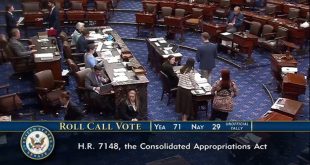 -Editorial
-Editorial
On September 1, President Claudia Sheinbaum delivered her first State of the Nation address, outlining the priorities of her administration and reaffirming the goals of Mexico’s ongoing “Fourth Transformation” movement. Sheinbaum emphasized advances in social welfare, infrastructure, constitutional reforms, and equality initiatives, painting a picture of a government focused on addressing systemic inequalities.
Among the achievements she celebrated were reported declines in several crime categories: a 25% reduction in homicides, a 31% drop in violent car thefts, and a 34% fall in feminicides compared to prior years. She also highlighted progress in education and health programs, including expanded scholarships, investments in public hospitals, and the strengthening of state welfare initiatives aimed at reducing poverty and inequality.
Yet, despite this optimistic tone, one critical issue lingers in the shadows of these reforms: public safety. For many Mexicans, particularly in states like Baja California, the violence connected to organized crime remains an inescapable reality. The president’s address acknowledged crime statistics but did not provide sufficient detail on how her administration intends to confront the deeply entrenched security crisis that continues to affect businesses, communities, and local economies.
Baja California’s fishing industry, a key driver of the regional economy, has been under siege. On June 12, 2024, the first major attack against industry leaders took place with the murder of Emilio Ohiiaishi Masuda, a well-known businessman. Just a week and a half later, Fernando Castro, owner of a fishing camp, was also killed.
On July 8, during a public event in Ensenada, Minerva Pérez Castro, president of the National Chamber of the Fishing and Aquaculture Industry (Canainpesca), made her third public denunciation against cartel extortion in the sector. Hours later, she was assassinated outside her business. The killing sent shockwaves through Mexico, as Pérez had become one of the most visible voices demanding action against organized crime infiltrating the fisheries.
What followed has raised further concerns. The Baja California Attorney General’s Office did not issue a statement and later reserved access to case files requested by investigative media outlets for five years, despite the fact that such information should be public. This decision has deepened the perception of opacity and impunity surrounding the case.
The wave of violence did not stop. On December 3, 2024, fishing entrepreneur Servando Valenzuela Nakato was also gunned down, marking yet another targeted killing in a sector increasingly caught between legal economic activity and criminal extortion networks.
The insecurity is not confined to fisheries. In recent days, Moises Muñiz, a young restaurateur and owner of El Compa Moy in Ensenada, announced on social media that he was shutting down his business due to “cobro de piso” (extortion fees) demanded by organized crime groups. His emotional video went viral, resonating with citizens and exposing how extortion is strangling local businesses.
For many residents, the video captured a reality they know all too well: small and medium-sized enterprises face enormous pressure from criminal groups, and many are forced to close their doors. Beyond the immediate economic losses, such incidents damage Baja California’s reputation as a safe destination for tourism and investment.
Violence That Crosses Borders
The tragedy in Ensenada is part of a broader pattern of insecurity across Mexico. Earlier in 2024, the murders of two Australian brothers and an American tourist in Ensenada drew international headlines, sparking concern among foreign governments and highlighting the risks faced by visitors. Similarly, the 2021 killing of Mirelle Hernández, a makeup artist in Tijuana, remains a symbol of how everyday citizens can become victims of a violence epidemic that respects no boundaries.
These cases reveal a harsh contradiction: while Mexico has invested heavily in promoting tourism and cross-border economic activity, escalating violence threatens to erode confidence among visitors and investors. Businesses operating in border states have voiced increasing concerns about security costs and the lack of robust protections for industry leaders who dare to expose corruption or criminal infiltration.
Data vs. Reality
President Sheinbaum’s administration points to national statistics showing gradual reductions in homicide and other violent crimes. However, regional disparities are striking. Baja California, Guerrero, Michoacán, Sinaloa, and Zacatecas remain among the most violent states, with homicide rates well above the national average. According to Mexico’s National Public Security System, Baja California consistently ranks in the top three states for intentional homicides.
Civil society groups argue that raw percentages can mask underlying trends. While feminicides may have declined nationally, women in northern states continue to report pervasive violence, harassment, and limited access to justice. Local organizations stress that numbers alone do not capture the fear residents live with daily—fear of extortion, kidnappings, or being caught in crossfire.
The Need for a Comprehensive Security Strategy
Sheinbaum’s address included ambitious reforms in judicial efficiency and law enforcement, such as measures to professionalize police forces and expand access to justice. Yet critics note that these proposals lacked detail and a clear timeline for implementation.
“Social programs are necessary, but they are not enough when organized crime is taking over industries and communities,” said a representative from a Baja California civil society coalition. “We need specific, localized strategies to dismantle these criminal structures. Otherwise, we will continue to lose lives, like that of Minerva Pérez, who fought for her sector.”
Analysts highlight that Mexico’s long-standing approach of focusing primarily on military deployments has not delivered sustainable results. Instead, they advocate for combining intelligence-led policing, judicial reforms, protection programs for whistleblowers, and stronger collaboration with affected industries and communities.
There is no denying that Mexico is a beautiful country with extraordinary potential. But for that potential to be realized, insecurity must be tackled decisively. Some analysts argue that Mexico may need to consider deeper cooperation with the United States, not only in terms of trade and diplomacy but also in the fight against organized crime. With U.S. intelligence resources and, potentially, military collaboration under a framework of respect for sovereignty, the region could begin to push back against the cartels that have destabilized communities. People are asking it.
For some, this includes the possibility of seeking support from figures like President Donald Trump, who has previously signaled a willingness to use U.S. intelligence and military capabilities against cartels. While such a scenario raises complex questions about sovereignty and bilateral relations, it also reflects the desperation of citizens who feel abandoned and unprotected in their daily lives.
Sheinbaum’s agenda emphasizes social justice, equality, and poverty alleviation—issues that resonate with millions of Mexicans. But without addressing the persistent violence plaguing regions like Baja California, the “Fourth Transformation” risks being overshadowed by fear and insecurity.
The message from civil society, industry leaders, and international observers is clear: Mexico’s transformation will remain incomplete if public safety is not secured. Protecting the lives of those who speak out, restoring trust in institutions, and ensuring safe conditions for economic and cultural growth are as critical as expanding social programs.
As Sheinbaum embarks on her six-year term, she faces a pivotal choice: to let insecurity undermine her broader reforms, or to confront it head-on with the same determination she has shown in addressing poverty and inequality. For communities in Baja California and beyond, the stakes could not be higher.


